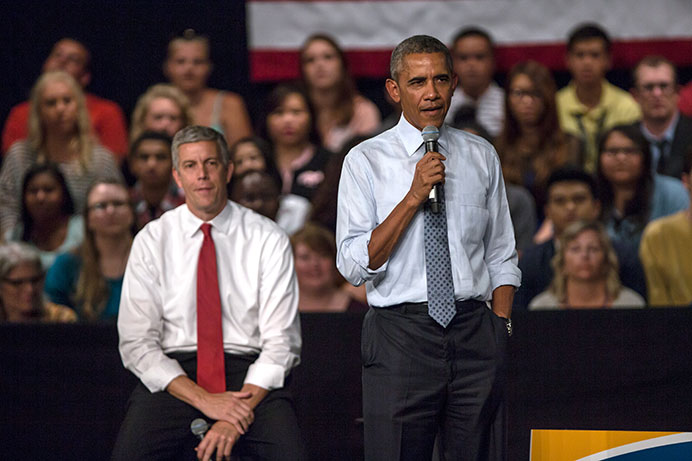Marcus Vincent Brown
[email protected]
As a sitting president, President Obama has made numerous trips to foreign countries, and with each visit, similar questions have risen about just how much leeway a visiting world leader has in speaking on issues that plague other countries. The policies and principles practiced in the United States are by no means universal or perfect, but that does that not mean that there are not certain aspects that could be applied to the practices of other countries. However, doing so requires tactful discretion toward the line between suggestion and imposition.
Obama has not been shy about voicing his opinions on areas he felt could be improved when visiting foreign countries and speaking to world leaders. The use of diplomatic platforms to express concerns about another country’s governance is a right reserved to those in the upper echelons of world leadership but not one that is always met with enthusiasm.
After the nuclear summit in Washington last week, Turkey President Recep Tayyip Erdogan criticized Obama for speaking about the repression of free speech in his country. Obama is not alone with his misgivings about Turkey’s attitude toward free speech, which has recently garnered “international condemnation” about the treason charges raised against two journalists who stand to face life in prison for releasing footage potentially linking Turkish intelligence to support of opposition fighters in Syria.
In his critical response to Obama, Erdogan said, “You cannot consider insults and threats press freedom or criticism,” raising the question of whether a definitive line can ever be drawn between the two. The question becomes even harder to answer when approaching it from the perspective of one used to the amount of press freedom allowed in the United States compared with other countries.
Last month during his historic trip to Cuba, Obama again spoke on issues of human rights and repression as political dissidents were arrested shortly before his visit. He encouraged Cuban President Raúl Castro to be more accommodating of democratic discourse among the general population while being sure to stress that the United States had no desire to impose democratic ideology upon the country during this period of potential reconciliation.
Similarly, around this time last year, the president used part of his time during a visit to Kenya to directly address discrimination against the LGBT community there. When speaking to Kenyan President Uhuru Kenyatta at a press conference, Obama described the mistreatment of the LGBT community as “the path whereby freedoms begin to erode and bad things happen”. Keep in mind this is a country in which acts of homosexuality are felony offenses that can result in up to 14 years of imprisonment.
It is unlikely that we will ever see a time in which the leaders of every nation agree on a method of governance and intrinsic rights granted to the rights of their constituency, nor will it probably ever be possible to say without a doubt which country, if any, has the best method of governance. There are pros and cons that can be found in the leadership of every country, and even these are subjective.
At the same time, these differences should not discourage dialogue, debate, or criticism. It is the balance between respect for the governance of other countries and the willingness to have frank conversations about concerns that will result in progress toward equality and freedom on a global scale.



